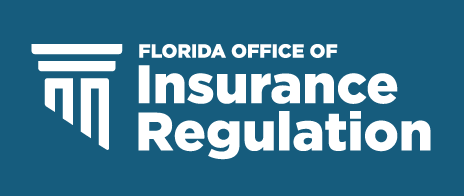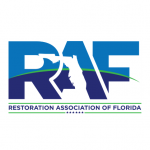Countering excessive litigation
 The list of property insurance companies trying to reduce their exposure in writing Florida homeowners policies continues to grow. Other carriers are looking for ways to reduce their litigation claim costs as regulators try to better quantify excessive lawsuits with a new reporting form. Meanwhile, the state is asking a federal judge to toss out a lawsuit by roofers challenging the legislature’s latest insurance consumer reforms. It’s all in this week’s digest of property insurance news.
The list of property insurance companies trying to reduce their exposure in writing Florida homeowners policies continues to grow. Other carriers are looking for ways to reduce their litigation claim costs as regulators try to better quantify excessive lawsuits with a new reporting form. Meanwhile, the state is asking a federal judge to toss out a lawsuit by roofers challenging the legislature’s latest insurance consumer reforms. It’s all in this week’s digest of property insurance news.
![]() UPC Insurance: As Citizens’ Barry Gilway recently reminded us, companies writing in Florida have only three choices in this underwriting loss environment: raise more capital, raise rates, or reduce exposure. United Insurance Holdings Corporation said in a recent news release that its board has begun a “review of its strategic and capital raising alternatives” that could include moves such as a sale. The company owns United Property & Casualty Insurance Company in St. Petersburg, which had 185,000 Florida policies at last report, making it one of the largest writers in the state. “As part of this process, the board will consider a wide range of options for the company including, amongst other things, a potential sale, merger, subsidiary divestiture, formation of a new Florida-domiciled reciprocal exchange, as well as the sale of equity, surplus notes or other financing or strategic transactions,” according to the news release.
UPC Insurance: As Citizens’ Barry Gilway recently reminded us, companies writing in Florida have only three choices in this underwriting loss environment: raise more capital, raise rates, or reduce exposure. United Insurance Holdings Corporation said in a recent news release that its board has begun a “review of its strategic and capital raising alternatives” that could include moves such as a sale. The company owns United Property & Casualty Insurance Company in St. Petersburg, which had 185,000 Florida policies at last report, making it one of the largest writers in the state. “As part of this process, the board will consider a wide range of options for the company including, amongst other things, a potential sale, merger, subsidiary divestiture, formation of a new Florida-domiciled reciprocal exchange, as well as the sale of equity, surplus notes or other financing or strategic transactions,” according to the news release.
 New ADR Idea: Citizens Property Insurance Corporation wants to add an Alternative Dispute Resolution (ADR) to all its policies across all lines as a way to limit expensive and excessive claim litigation. Cases would be heard by an administrative law judge through the state’s Division of Administrative Hearings (DOAH), which as a quasi-governmental entity, Citizens has access to. Citizens has laid the groundwork with state regulators and DOAH, which is prepared to hire more judges. Citizens said this will result in speedier resolutions than using the state court system, with administrative orders to be issued within 30 days and be binding on all parties. It would authorize attorney fees of $200 per hour for both sides, allowing Citizens to use internal counsel. The move requires approval by the Office of Insurance Regulation (OIR).
New ADR Idea: Citizens Property Insurance Corporation wants to add an Alternative Dispute Resolution (ADR) to all its policies across all lines as a way to limit expensive and excessive claim litigation. Cases would be heard by an administrative law judge through the state’s Division of Administrative Hearings (DOAH), which as a quasi-governmental entity, Citizens has access to. Citizens has laid the groundwork with state regulators and DOAH, which is prepared to hire more judges. Citizens said this will result in speedier resolutions than using the state court system, with administrative orders to be issued within 30 days and be binding on all parties. It would authorize attorney fees of $200 per hour for both sides, allowing Citizens to use internal counsel. The move requires approval by the Office of Insurance Regulation (OIR).
 Updated Claims Litigation Reporting Form Template: OIR held a final public hearing last week on its proposed updated form that’s part of a new yearly data call required under SB 76, the Florida Legislature’s 2021 reforms. This is designed to add more transparency to the true distribution of claims dollars (damages vs. attorney fees). During the hearing, OIR took note that insurers don’t receive information on what the plaintiff lawyer fees are in order to complete this form and that we will never receive that data. It was a brief meeting with a handful of questions and it appears OIR will use this version as its final, with the first report due in January 2023.
Updated Claims Litigation Reporting Form Template: OIR held a final public hearing last week on its proposed updated form that’s part of a new yearly data call required under SB 76, the Florida Legislature’s 2021 reforms. This is designed to add more transparency to the true distribution of claims dollars (damages vs. attorney fees). During the hearing, OIR took note that insurers don’t receive information on what the plaintiff lawyer fees are in order to complete this form and that we will never receive that data. It was a brief meeting with a handful of questions and it appears OIR will use this version as its final, with the first report due in January 2023.
 Roofers’ Federal Lawsuit: The Florida Legislature’s 2022 reforms passed in May’s special session clarified 2021 reform language and put additional disclosure requirements on roofers’ solicitations, including: that the consumer is responsible to pay the deductible, that it’s against the law for a contractor to pay or waive the deductible, and that it’s a felony to file a claim containing false, fraudulent, or misleading information. That prompted the Restoration Association of Florida (RAF) and Apex Roofing & Restoration to amend last year’s federal lawsuit against the state, claiming that the new law as well violates their First Amendment rights and is “unduly burdensome.” The state filed its response on July 11 asking that the amended lawsuit be dismissed, claiming the plaintiffs haven’t shown legal standing.
Roofers’ Federal Lawsuit: The Florida Legislature’s 2022 reforms passed in May’s special session clarified 2021 reform language and put additional disclosure requirements on roofers’ solicitations, including: that the consumer is responsible to pay the deductible, that it’s against the law for a contractor to pay or waive the deductible, and that it’s a felony to file a claim containing false, fraudulent, or misleading information. That prompted the Restoration Association of Florida (RAF) and Apex Roofing & Restoration to amend last year’s federal lawsuit against the state, claiming that the new law as well violates their First Amendment rights and is “unduly burdensome.” The state filed its response on July 11 asking that the amended lawsuit be dismissed, claiming the plaintiffs haven’t shown legal standing.
“Additionally, they do not allege anything about any particular door hangers, business cards, magnets, or flyers that would suggest that the mandatory disclosures would be unduly burdensome if incorporated into those written materials,” according to the state response. RAF is pursing similar actions in state court.
LMA Newsletter of 7-25-22

